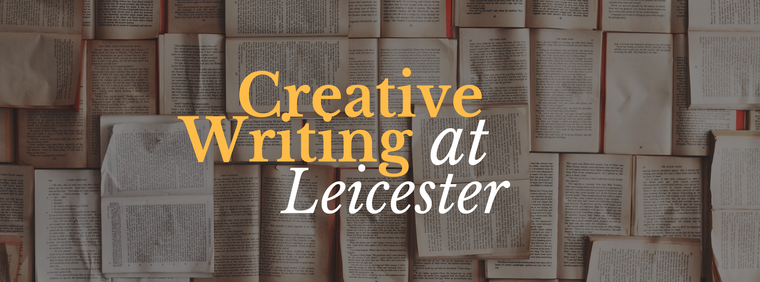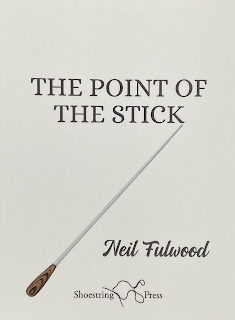Here is this semester's programme of Creative Writing guest lectures and masterclasses happening this term in the Centre for New Writing at the University of Leicester. All the events are free and open to everyone: students, staff and the public alike. If you'd like to attend one of them, and aren't already registered, please email Jonathan Taylor (jt265@le.ac.uk) for further details.
Centre for New Writing, University of Leicester: Programme of Events Spring 2024
Dave Bradley, "How to Nearly Make It as a Professional TV Writer" (Guest Lecture)
Tuesday 13 February, 11am-12, Bennett Building, room F75a.
This guest lecture is part of the first-year undergraduate module "Introduction to Writing Creatively 2." All are welcome to attend. Please email jt265@le.ac.uk to reserve a place if you are not registered on the module.
Kit De Waal, "The Journey to Publication" (Masterclass)
Wednesday 20 March, 2-4pm, George Davies Centre, room 1.26.
This masterclass is part of the MA in Creative Writing. All are welcome to attend. Please email jt265@le.ac.uk to reserve a place if you are not on the MA.
Literary Leicester Festival 2024
Wednesday 20 March to Friday 22 March.
Free and open to all! You can see this year's fantastic line-up of events and book in advance here.
Creative Writing Student Showcase
Wednesday 20 March, 5-6pm, Attenborough Film Theatre.
Free and all welcome! As part of Literary Leicester Festival, we're holding our annual showcase event for University of Leicester BA, MA and PhD Creative Writing students to read and perform their poetry, stories and scripts. If you're a student or graduate and would like to get involved, please email Jonathan Taylor (jt265@le.ac.uk) in advance.
Corinne Fowler, "Country Walks Through Colonial Britain: Combining Historical Research, Nature Writing and Reported Conversation" (Guest Lecture and Masterclass)
Monday 25 March, 10am-12, Attenborough Building, room 2.02. This workshop is part of the MA in Creative Writing. All are welcome to attend. Please email jt265@le.ac.uk to reserve a place if you are not on the MA.
Barbara Cooke, "Pedagogic Puzzles: Harnessing the Thrill of Discovery in the Creative Writing Classroom" (Guest Workshop)
Wednesday 27 March, 2-4pm, George Davies Centre, room 1.26.
In this workshop, we will experience how the "dopamine hit" that accompanies the solving of literary puzzles can be harnessed for use in Creative Writing. While an established part of literary criticism since Kermode’s "Freud’s Masterplot," the technical skill involved in creating, as opposed to observing, the building and thwarting of readerly satisfaction deserves more attention. We will explore how workshop exercises can help you to promote the thrill and satisfaction of readerly discovery in your work and, most excitingly, to flex your own puzzle-solving and code-cracking abilities. This workshop is part of the MA in Creative Writing. All are welcome to attend. Please email jt265@le.ac.uk to reserve a place if you are not on the MA.
Paul Taylor-McCartney, "Setting Up an Independent Publisher: Hermitage Press" (Guest Lecture)
Tuesday 14 May, 10am-11am, Attenborough Building, room 2.08.
This guest talk is part of the MA in Creative Writing. All are welcome to attend. Please email jt265@le.ac.uk to reserve a place if you are not on the MA.
Joe Bedford, "From Dissertation to Publication to PhD" (Guest lecture)
Tuesday 14 May, 11.15am-12.15am, Attenborough Building, room 2.08.
This guest talk is part of the MA in Creative Writing. All are welcome to attend. Please email jt265@le.ac.uk to reserve a place if you are not on the MA.

















.jpg)
